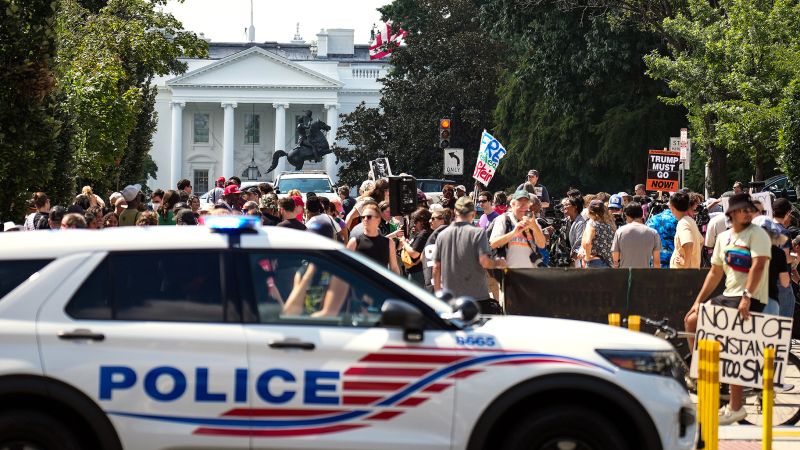The ongoing dynamics surrounding law enforcement in Washington, D.C., have taken a dramatic turn following President Donald Trump’s recent declaration of a crime emergency and his subsequent decision to federalize the city’s police force. In this unprecedented move, the Metropolitan Police Force (MPD) now finds itself entangled with federal agencies, prompting a flurry of confusion regarding leadership and operational strategy. Sources have reported that multiple agencies, including the MPD, are scrambling to define their roles in this new framework, lacking clear communication prior to Trump’s announcement during a press conference.
During the event at the White House, President Trump stated, “We’re going to restore the city back to the gleaming capital that everybody wants it to be,” indicating an assertive approach to crime control. However, the lack of prior communication became evident as D.C. Mayor Muriel Bowser and Police Chief Pamela Smith learned of the decision in real-time alongside the public. This unexpected announcement has raised questions about the command structure of the MPD, how policing strategies might evolve, and the compatibility of federal agents—many of whom lack community policing training—with local law enforcement.
In the aftermath of the president’s speech, Mayor Bowser moved swiftly to clarify her position. She stated her intention to meet with Attorney General Pam Bondi, whom Trump had appointed to oversee the federal takeover process. Bowser insisted that Chief of Police Smith would continue to lead the department, maintaining that nothing about the existing organizational chart had changed. The mayor’s statements aimed to restore some semblance of order amidst the chaos, but the executive order’s implications leave a lot to be desired regarding practical governance.
The legal framework behind Trump’s decision stems from the Home Rule Act of 1973, which permits the president to take control of D.C.’s police force during a declared emergency for a limited period. The legality stems from the definition of “emergency” conditions, and while Trump insists on the necessity for federal oversight, there is no clarity on the long-term implications of such an unprecedented federalization. Dr. Heidi Bonner, an expert in Criminal Justice at East Carolina University, remarked that it remains an open question regarding the leadership and authority within the MPD under federal oversight.
The Justice Department, while addressing questions about the order, indicated that Mayor Bowser would be responsible for providing MPD services as deemed necessary by the Attorney General. However, the practical execution of these services remains muddled. Compounding this confusion, Bowser noted the support she received from prominent Democrats but conceded that opposition to the federal takeover was limited due to the city’s unique governance structure.
Adding to the landscape of confusion, Trump activated 800 members of the D.C. National Guard to assist law enforcement efforts, with a significant number assigned to support patrol efforts. The unprecedented nature of this deployment raises concerns about the expertise and effectiveness of such an approach, particularly when federal agents like the FBI are tasked to patrol alongside local police, often without proper citizen-oriented training.
Moreover, there also contours of concern regarding the potential ramifications of federal agents conducting police duties in D.C. As there are stark differences between the operational protocols of federal agents and local police, the resultant oversight and responses to incidents could potentially exacerbate issues on the streets. Critics have highlighted a misallocation of resources, with federal agents diverted from critical investigations in areas such as terrorism and cybercrime.
In a broader assessment of the city’s crime situation, Trump’s claims stood in contradiction to statistics indicating a general decline in crime rates. The juxtaposition of the president’s narrative against prevailing statistics raises questions about the underlying motivations for such an aggressive approach. Dr. Bonner observed that long-term effects on crime would likely be minimal if the initiative does not address root causes. She emphasized that without tackling fundamental issues linked to crime, short-term measures are unlikely to yield lasting change.
As the landscape continues to evolve, the outcomes of Trump’s emergency declaration remain to be seen, but one thing is clear: the complexities surrounding D.C.’s governance and the role of law enforcement will require meticulous navigation in the days to come. The developments raise pressing questions about accountability, efficacy, and the future of police-community relations in the nation’s capital.











